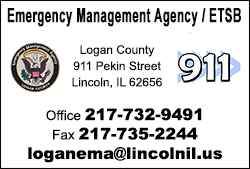|
 The following suggestions may help you with "next
steps" to take. This is written for people who think they may have
memory loss, but it may also be useful for the
spouse/partner/best-friend/caregiver to help the person deal with
suspected memory loss. The following suggestions may help you with "next
steps" to take. This is written for people who think they may have
memory loss, but it may also be useful for the
spouse/partner/best-friend/caregiver to help the person deal with
suspected memory loss.
Ten Best Things to do if you think you have memory loss
1. Ask your closest confidant to join you in exploring the issue.
If that person dismisses the notion, say, "I hope I don't have a
problem, but I would like your help in exploring the possibility."
Talk about the events that are raising the concern for you.
2. Talk to your primary care physician.
The doctor may do some brief testing, and will likely try to "rule
in or rule out" certain possible causes of memory loss. Some
diseases, such as urinary tract infections can temporarily impair
memory.
Some medications, especially pain medications, can produce temporary
memory loss. Alcohol or marijuana usage may inhibit memory.
Disrupted sleep patterns or sleep apnea may play a role.
Your physician does not want you to have memory loss and will want
to help you to eliminate anything that may be causing you distress
in this area.

3. Consider a referral to a neurologist specializing in memory
care.
Such specialists will welcome your inquiry, but will not pull you
into a program if your problem is not serious. They can "rule in or
rule out" with broader expertise than your primary physician.
4. If the evaluations DO indicate that your memory loss is at the
level described as "mild or moderate dementia," do not panic.
Dementia is common, and there are many possible causes. Alzheimer's
disease is the most frequent cause, but there are many different
causes. (For example, strokes, brain injuries, Lewy body dementia,
frontal lobe dementia, Parkinson's disease.)
5. Pursue further diagnosis.
Your dementia may not be "curable," but it may be treatable. Various
activities and medications may help your brain to function more
effectively than if you were doing nothing. Your diagnosis guides
treatment choices.
6. Be open with friends and acquaintances about your diagnosis.
They will often be surprised that you have been diagnosed, and will
be supportive of your efforts to deal with the problem "head-on."
Your condition is not a cause for shame. Because of your openness,
others who may be denying or trying to hide their memory loss
problems, will be encouraged to deal with the issue more directly.
7. Consider experimental testing.
Your neurologist, especially if the practice is associated with a
medical school, may be able to link you up with the latest, most
promising drug treatments, long before they are available to the
general public.
The tests are closely monitored, and will not be dangerous to you.
The tests may not help you with your memory loss, but you will be
part of the hard-won victory over dementia that we hope will enable
your children or grandchildren to avoid the disease.

8. Join a dementia support group.
Alzheimer's Association sponsors such groups in many communities.
The group may be labeled "Alzheimer's Support Group," but most
groups have people with many different dementias.
-
The group leaders are equipped to understand the diversity of
issues.
-
The groups provide education and partnership with others who are
walking a parallel walk with you.
-
Caregivers are especially encouraged to participate.
9. Maintain an active life-style.
Travel. Socialize. Read. Exercise. Go to movies. concerts, church
activities. In each event make sure that there is someone close to
you for back-up if your memory loss happens to present a problem for
you.
A healthy, active life reduces the negative impact of dementia.
10. Keep learning as much as you can for as long
as you can.
Memory loss clinics often provide workshops and seminars on dementia
issues.
The Alzheimer's Association can make many resources available to
you, including a 24/7 "Helpline."
[to top of second column] |

In contrast to the preceding recommendations, there are some
warnings to be issued against actions that would be most unhelpful.
Worst things to do if you think you have memory loss
1. Deny it.
Denying memory loss not only keeps you from effective treatment. It
inhibits others from helping you with the problem.
2. Hide it.
Covering up may help you to avoid remedial action for the moment,
but you begin to live with the awkwardness of others sensing that
"something" is wrong, but you seem to avoid dealing with it.
3. Be ashamed of memory loss.
This diagnosable medical problem is not the result of a horrible,
self-indulgent lifestyle. You will not be devalued because you have
memory loss.
4. Avoid medical treatment.
There are various "natural" treatments sold, primarily to people who
do not want to face up to the disease that may be causing dementia.
While there may be "testimonies" of cures, NONE of these medications
have been proven effective in scientific testing, in spite
flamboyant claims on the internet.
If pursuing these nostrums is done in the place of medical
treatment, you are expensively avoiding the resource that offers the
best chance for easing the problem.
5. Go it alone.
Rugged individualism may be an American tradition, but when you are
dealing with memory loss, you need someone to help you. A spouse or
family member may be your best ally and accountability partner, but
the issue must be negotiated openly and directly.
Isolation intensifies confusion.

6. Look only at the end-stage of disease.
Most people have an image of an end-stage Alzheimer's victim lying
in a fetal position, staring at the ceiling with no response to the
surroundings. But the end-stage of any disease is a frightening
image.
The many intervening years may provide many opportunities for joy
and shared experiences. Don't give up these treasures out of fear of
an end that you may never experience.
Nobody should say that losing your ability to remember is not a
serious problem. But careful and strategic actions can help you and
your loved one face the challenge more effectively.
The author is a retired professor and pastoral counselor who was
caregiver for his late father and his late wife, both of whom had
Alzheimer's Disease. He is also a facilitator for the Logan County
Alzheimer's Support Group which meets 1:30 p.m. the third Tuesday of
each month at the Oasis Seniors Center, 2810 Woodlawn Rd, Lincoln,
IL
|